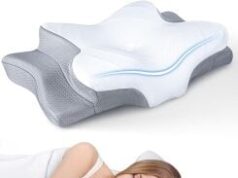
Collagen powder has been getting more popular as a supplement—it’s not just for skin health anymore, but used by athletes as well. This raises a question: If you’re taking collagen for its potential benefits to your tendons and joints, and you’re also eating plenty of protein so you can gain or maintain muscle, should you count your collagen supplements toward your daily protein intake? To answer that, I have to tell you a little bit about what collagen is and how it works in our bodies when ingested.
What is collagen, anyway?
Collagen is a protein that’s found in our connective tissues. It makes up parts of our tendons, ligaments, cartilage, skin, fascia, and more. We don’t need to get collagen in our diets so long as our diets give us the ingredients we need to make it—our bodies can build collagen out of the amino acids we get from various protein-rich foods.
(Fun fact: One of the reasons vitamin C is so important is that it’s required to properly install collagen proteins in our connective tissues. Without vitamin C, our bodies can’t link the strands of collagen together, leading to the condition known as scurvy. Teeth falling out may be the iconic symptom, but old wounds can also reopen, since scar tissue can no longer hold together. Also everything hurts and you die. But I digress.)
Gelatin, like the kind you can buy to make Jell-O or to make store-bought chicken broth taste homemade, is pretty much all collagen. It’s made from the skins (not hooves, sorry) of animals like cows and pigs that were slaughtered for their meat.
But when you buy a collagen supplement, it’s usually “hydrolyzed” collagen, or “collagen peptides.” This means that, unlike gelatin, the chains of collagen here have been cut into small pieces. This allows the collagen powder to be added to liquids without turning them into gel.
What happens to collagen when we eat it?
All proteins are made of amino acids. When we eat something containing protein, be it a steak or a soybean, our bodies take it apart and use the amino acids to build whatever proteins we want, such as muscle fibers or digestive enzymes or, yes, connective tissue.
There is some evidence suggesting that sometimes, collagen peptides—short chains of amino acids—aren’t fully broken apart when we eat them. It’s also possible that one of the amino acids in collagen, hydroxyproline, acts as a signal to our bodies to make more of our own collagen.
This is why I’m open to the possibility that collagen powder might actually be a helpful supplement, and not just a second-rate protein powder. I take a collagen supplement myself, in hopes that it may benefit my joint health. That said, I’m fully OK with the possibility that I’m wrong, and it’s totally a placebo, and I’ve wasted my money. We can all take a frivolous gamble every now and then.
So does collagen count as protein?
Collagen is a protein, but it’s also an incomplete protein. Of all the amino acids our bodies use, about nine of them are considered essential, which means we need to get them from the foods we eat. A “complete protein” is one that includes all nine amino acids. Meats and dairy contain complete proteins; so does tofu.
Normally we don’t have to worry about whether proteins are complete or not. Vegetarians used to be told that they needed to combine incomplete proteins (like eating rice with beans) to get all their essential amino acids. But as long as you eat a variety of foods, and a sufficient amount of total protein, you’re unlikely to end up missing anything.
A 2019 study in the journal Nutrients looked at the collagen question directly. Since collagen is missing tryptophan, how much collagen can you have in your diet and still be able to get enough tryptophan from other sources? A lot, it turns out—collagen can safely be up to 36% of your total intake.
The collagen supplement I take has 20 grams in a double scoop. According to this study, I could take four scoops, as long as I’m getting about 110 grams of protein in total (and I normally get more protein than that, anyway).
So: yes, collagen can count toward your total protein intake, as long as you’re getting plenty of good protein from other sources. Even at a total protein intake of 60 grams–which is on the low end of what’s considered healthy–you can have a 20-gram serving of collagen every day and still be fine with just 40 grams of protein from other foods like chicken, yogurt, beans, and so on.
And if you’d like to be an overachiever: you can get extra tryptophan, the essential amino acid that collagen is low in, from the above foods as well as quinoa, oats, and pumpkin seeds.








